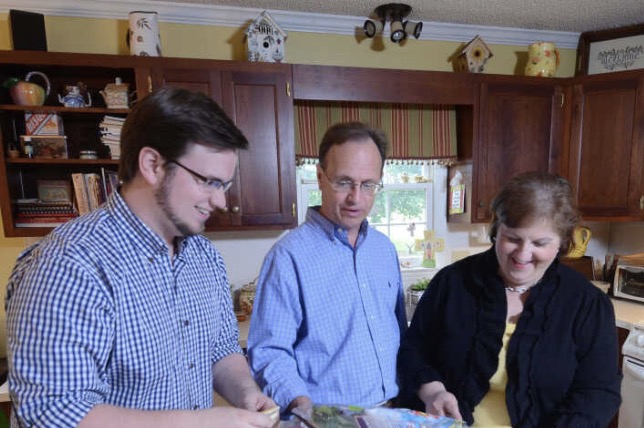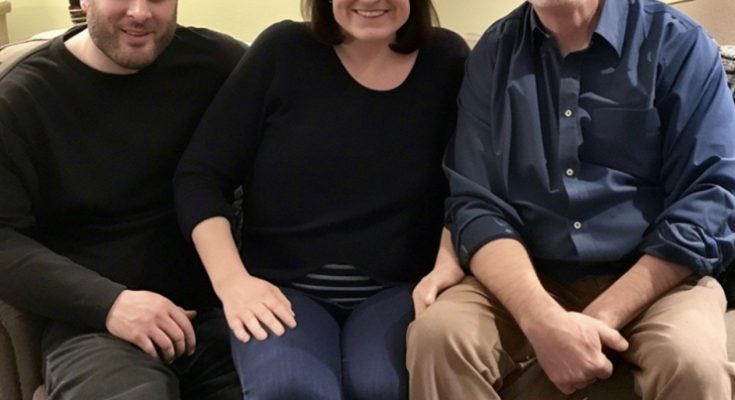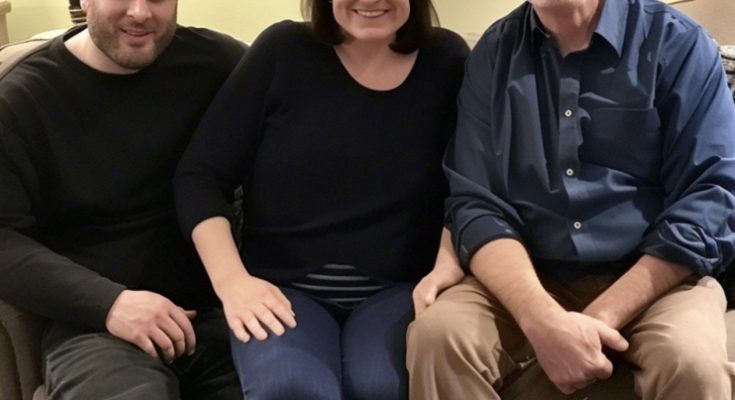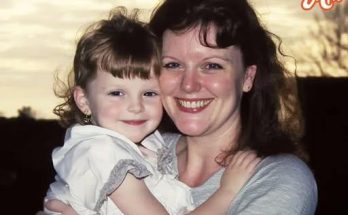
The preference my folks showed for my brother’s sporting event over my marriage ceremony left a familiar ache of abandonment in me. They could not foresee that their choice would ignite a familial conflict unparalleled in our lives. The repercussions of their partiality rippled across our circle, compelling them to confront their deeds.
From the moment my younger sibling Mike, aged 21, entered our lives, he became the apple of our parents’ eyes, leaving me to linger unnoticed. My mother, in particular, seemed oblivious to my existence.
Mike was pampered and treated with entitlement, while I faced neglect. Now at 27, not a penny was spared by my parents on my educational pursuits. I recently found out they had diverted my college savings to fund Mike’s new vehicle and home purchase. The lone champion in my corner was our grandfather.
That was until Lucas came into my life. He offered me a sense of affection and value I had never known before. Our decision to wed seemed like an opportunity for my parents to demonstrate some semblance of care. I arranged a family dinner to share our plans.
Regrettably, at the announcement, my mother coldly stated, “Oh, darling, Mike has his match that day. We won’t make your wedding.”
“Is this a joke?” I managed, striving to maintain composure. “We’re discussing my wedding here. It’s not just any game.”
“Emily, you must understand, this match is crucial for Mike,” she dismissed me swiftly. “He’s put so much into it.”
“What about my efforts?” I countered, my patience wearing thin. “You’ve missed every dance show, every graduation, and now you’ll miss my wedding too? When do I matter?”
My father interjected, visibly uneasy, “Emily, we truly regret this, but Mike really needs us.”
“I needed you too!” I exclaimed, the familiar hurt of their favoritism stinging anew. “But you were never there. Not once.”
It became clear they wouldn’t alter their stance. Their consistent preference for Mike wasn’t new, but it still cut deeply.
On the day I married, my grandfather was the one who walked me down the aisle. The ceremony was heartwarmingly beautiful, making me feel truly significant for once.
Lucas and I then embarked on a device-free honeymoon. Upon our return and reconnection with the world, my phone was inundated with messages, predominantly from Mike and my mother.
Mike’s messages were spiteful, one reading, “You’re so selfish! Marrying without us? You’ve ruined everything!” Another accused, “Why drag our names through the mud online just because we missed your wedding? Get over it!”
After several calls, I learned that an aunt on my father’s side had posted wedding photos online with a caption sharply criticizing my parents. This sparked widespread community backlash against them for their unfair treatment towards me. My grandfather, fueled by indignation, confronted my parents, driving my father to tears.
This confrontation seemed to be a turning point for my father, who, overwhelmed by regret and my grandfather’s condemnation, challenged my mother to amend their relationship with me or face a potential separation.
The messages from my mother started harsh but soon turned desperately pleading.
“You ingrate! After all we’ve done, this is how you repay us?”
“If you don’t make this right, you’ll regret it. Think we can’t disown you?”
However, her tone changed to, “Please, Emily, forgive us. We didn’t realize the pain we were causing. We need to fix this.”
Settling back home, Lucas and I deliberated on our future steps.
“Follow your heart, not others’ desires,” Lucas advised, offering comfort.
I sighed, burdened. “But what does that even mean? Everyone has their opinion on what I should do.”
Lucas reassured me, “It means establishing boundaries you’re comfortable with and allowing yourself time to heal. There’s no need to hurry forgiveness or reconciliation.”
“I’m not sure I can ever trust them again,” I admitted, uncertainty in my voice.
“Trust rebuilds slowly,” he reminded me. “If they truly want to mend fences, they’ll respect your terms and pace.”
I agreed to meet my parents at a neutral location to discuss everything openly. We chose a quiet café where the conversation was emotionally charged but necessary.
“Mom, Dad, why did you think it was acceptable to prioritize Mike’s match over my wedding day?” I began, emotion heavy in my voice.
My father was the first to accept fault, admitting he had allowed my mother too much control, which had hurt me deeply.
“I’m truly sorry,” my mother chimed in, her voice trembling. “We didn’t grasp the extent of our neglect.”
The admission was overwhelming. “How could you not see? You missed every pivotal moment in my life!”
My mother tried to justify their actions, suggesting Mike’s younger age and needs as reasons, but I wouldn’t have it.
“No, it’s not just about Mike being younger. It’s about you always choosing him, disregarding me,” I asserted firmly.
Tears welled in her eyes as she reached out, but I was hesitant. “I realize I let you down,” she whispered. “I’m not expecting quick forgiveness, but please let us try.”
“Why should I believe you now?” My voice was soft but filled with skepticism.
My father earnestly added, “We’re willing to undergo counseling to show our commitment to change. We want to be part of your life, on your terms.”
I took a moment to process. “Apologies are a start, but I need to see real change through actions, no more favoritism, no excuses.”
They both nodded, understanding the gravity. “We will do whatever it takes,” my mother promised through tears.
Holding her hand tentatively, I wasn’t ready to forgive fully but was open to seeing if they could genuinely change. “We’ll see,” I said quietly. “Time will tell.”
In the following months, they made tangible efforts, attending counseling and actively participating in my life, treating both Lucas and me with newfound respect and equality.
Share




